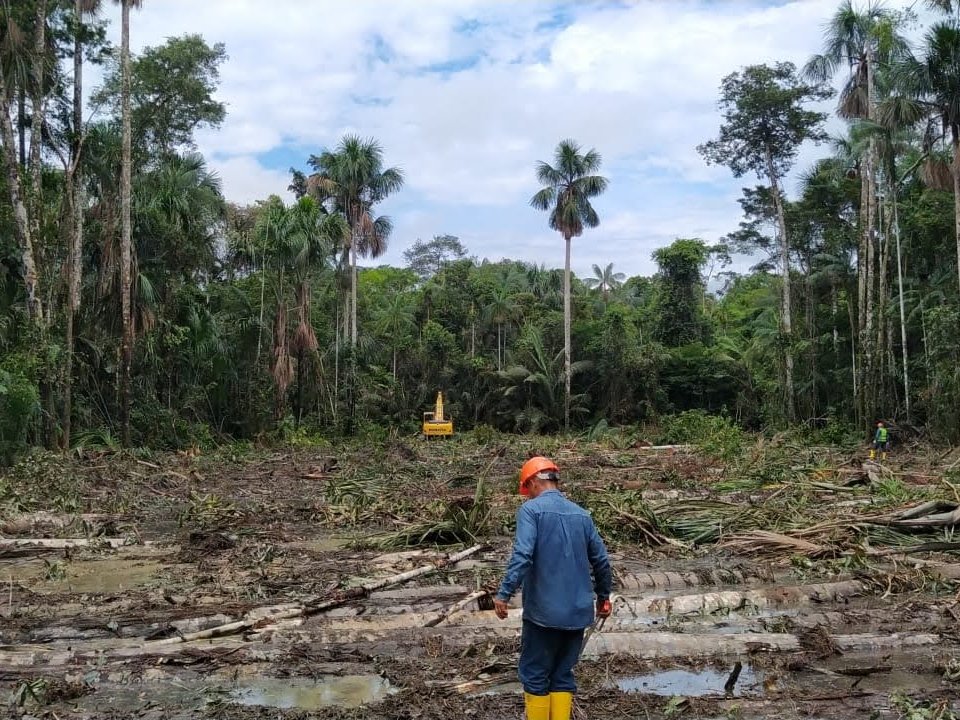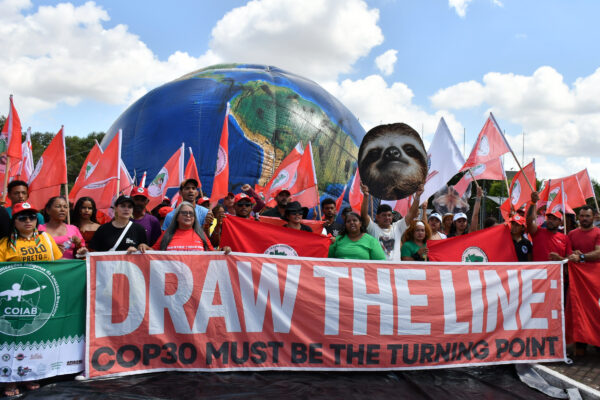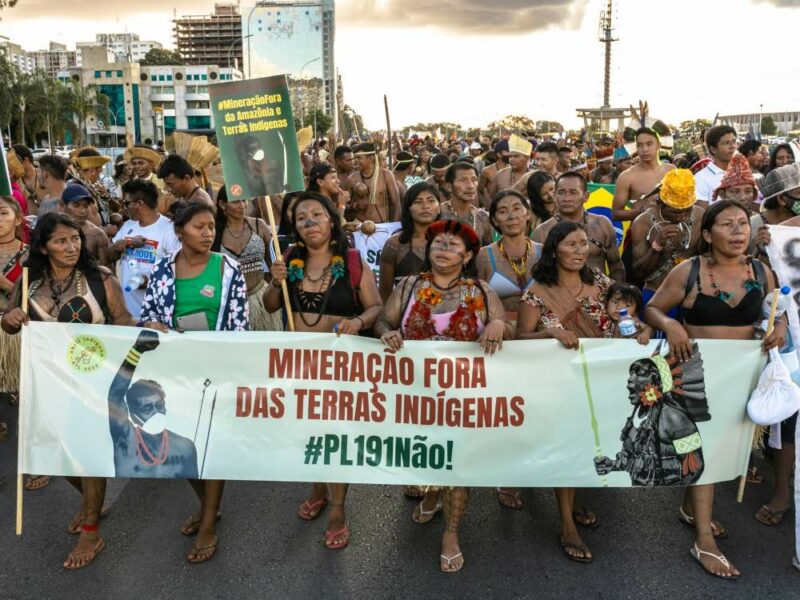Ecuador’s Indigenous movement and the government of Guillermo Lasso have agreed to a temporary moratorium on all new oil and mining concessions. This major development puts the country’s plans to double oil production and significantly boost mining investment in question.
The deal was reached after 60 days of negotiations between Indigenous organizations, including the Confederation of Indigenous Nationalities of Ecuador (CONAIE), and the government. The talks were the result of an 18-day strike by Indigenous peoples over rising costs of living, the environment, and rights impacts of oil and mining activity in the Amazon and Andes mountains. The moratorium will remain in place for at least 12 months or until there is a law guaranteeing the right to free, prior, and informed consultation for Indigenous peoples before such activities can take place in their territories. CONAIE representatives are not satisfied with the negotiations and are discussing strategies to secure government responses to their core demands.
The agreement halts any new contracts for 16 Amazonian oil blocks, putting the government plans to auction the concessions in the next year on hold. The concessions, which were slated to be part of the Ronda Suroriente oil tender have long been controversial. Protests from Indigenous nations, lawsuits, and international campaigns have kept companies from drilling there for decades. But Lasso’s hope to open up the blocks – an estimated 36,422 square kilometers of primarily roadless, old-growth rainforest – to new exploration incompatible with the goal of the Paris Climate Agreement to restrict warming to 1.5° – 2°C, continues to run into trouble.
It also halts new mining concessions – which the government had been feverishly courting new investment for – until a free, prior, and informed consultation law is adopted. It also restricts new environmental permits for mining activities until comprehensive environmental legislation is passed. Legal and illegal gold and copper mining have taken a devastating toll on the country’s rich Andean-Amazon ecosystems and the health of local communities. Indigenous leaders critical of oil and mining continue to face intimidation, threats, and criminalization for their efforts to protect their territories and exercise their rights.
At a Tuesday morning press conference in Quito, CONAIE president Leonidas Iza said, “After 50 years of oil ‘development,’ the majority of the destruction is in our territories. It is our territories that are being destroyed…In all phases of extraction – from the moment concessions are signed, through exploration and extraction, our rights to consultation and consent have been violated.”
The oil industry is already sounding the alarm on the agreement, citing rising social risk and legal instability, and flagging that any potential oil from the new blocks is already years away–all issues that the Indigenous movement and civil society organizations have been pointing out for years. These are many of the same issues that made companies like ConocoPhillips, ARCO, CGC, and others abandon drilling plans years ago.
Major E.U. banks have also committed to stopping the financing of trade of Ecuadorian crude, drying up the majority of traditional financing for the sale of oil from the Amazon and presenting another obstacle for government plans to double production. The move from banks forced Petroecuador to take the unprecedented step of modifying the terms and conditions of oil sales to help buyers obtain lines of credit from a dwindling pool of banks – a move more common when a country is facing sanctions.
The agreement comes on the heels of recent legal challenges that could restrict oil extraction of Ecuador’s largest oil reserves – Ishpingo, Tambococha, Tiputini (ITT) – underneath Yasuní National Park. A recent decision by the country’s national electoral court revived a case that could put the question of whether to leave the ITT fields permanently in the ground before voters as early as February. And a hearing that started in August by the Inter-American Court of Human Rights in Brazil could give territorial rights to two Indigenous peoples living in isolation, expanding a “no-go” zone for them and restricting both new wells and some currently in production.
While CONAIE is also calling for a moratorium on current oil and mining production and for all new concessions to be canceled, the agreement is a necessary first step towards avoiding the lock-in of concession contracts and projects without securing the consultation of Indigenous peoples. This move could ultimately lead the government to end new exploration and expansion of the fossil fuel frontier and mining activity. Until it does, we’ll maintain the pressure and ask for your solidarity – international support is crucial in securing the path for the next victory.












